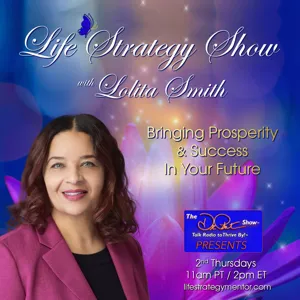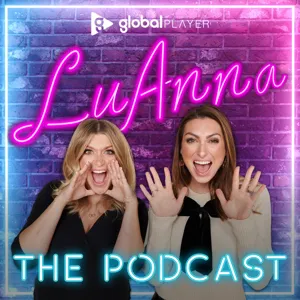Podcast Summary
Breaking Free from Societal Expectations to Discover Our True Selves: Recognizing and challenging societal expectations is the first step towards living a more fulfilling life and embracing our authentic desires. We have the power to create a meaningful existence by being true to ourselves.
Societal and family expectations can lead us to disconnect from our true selves, ultimately causing a deep sense of hollowness and depression. We often play by the scoreboard of what others want from us, following paths that don't align with our authentic desires. However, it's never too late to break free from these expectations and discover our true selves. Recognizing our unconscious shaping to fit the expectations of others is the first step towards living a more fulfilling life. The purpose of life, in essence, is to uncover our true selves and live authentically, embracing kindness along the way. Remember, we have the power to change our course and create a more meaningful existence.
Unveiling the Illusion: Breaking Free from External Identity and Reclaiming Our True Self: Our attachment to external factors for our sense of self can lead us astray. By understanding the protective nature of this attachment, we can reclaim our true identity and build a healthier self-relationship.
We often attach our sense of self and identity to external factors, such as our job or title. This attachment is rooted in early experiences, like school or family dynamics, where we may have been labeled a certain way (e.g., the athletic one, the high-achieving student). Over time, we internalize these labels and connect our self-worth to them. However, as we reach midlife or face challenges, this external identity starts to crumble, leaving us feeling lost and hoodwinked. To break free from this pattern, it's crucial to uncover the benefit of attaching our self-worth to externalities. Understanding that it serves as a protective shield allows us to start reclaiming our true sense of self and develop a healthier relationship with our identity.
Unconscious Patterns: Understanding Their Purpose and Impact: Recognize and question the benefits gained from our unconscious patterns, explore the risks and fears of breaking free, and transform our behaviors to create the conditions we truly desire.
Our unconscious patterns and behaviors often serve a purpose in keeping us safe and providing a sense of belonging. These patterns may have developed from our upbringing or family lineage, where we adopt certain methodologies to fit in. However, it's essential to recognize the benefits we gain from these patterns and question whether they align with the conditions we claim we don't want. For example, a CEO may complain about always being depended on by their staff, but deep down, it gives them a sense of importance and validation. To bring awareness to these patterns, we must explore the risks and fears associated with breaking free from them. This self-reflection allows us to transform and create the conditions we truly desire.
Overcoming the Fear of Wasting Time: Navigating Psychological Safety and Relationships: Understanding the impact of our fear of wasting time can help us break free from shame and fear, leading to healthier perspectives on success and feedback.
Our fear of wasting someone's time can deeply impact our psychological safety and relationships. When we hold power within an organization or create content like a podcast, our fear of being seen as a waste of time can cause us to constantly seek validation and improvement. We may overlook positive feedback and only focus on negative comments or criticisms. However, this fear can also serve as motivation to continuously improve our skills and prove ourselves. By understanding the benefits and motivations behind our reactions, we can start to release ourselves from the grip of shame and fear, and develop healthier perspectives on success and feedback.
Shifting from Negative to Positive: Embracing Self-Forgiveness for a Meaningful Life: Embrace positivity, acknowledge accomplishments, and forgive yourself for mistakes to lead a more fulfilling life.
Our tendency to focus on negative outcomes and use them as motivation can drive us to achieve certain goals, but it ultimately leaves us feeling hollow and unfulfilled. This negative-driven mindset may be ingrained in us through socialization or even evolution, but it comes at a cost. We need to consciously shift to a mindset of embracing the positive, acknowledging our accomplishments, and finding intrinsic worth in our actions. Forgiving ourselves for mistakes and flaws is a crucial part of this process. By recognizing the importance of self-forgiveness and shifting our perspective to appreciate the positives, we can lead more meaningful and rewarding lives.
Cultivating Resilience and Equanimity for Personal Growth: Embracing resilience and equanimity allows us to navigate life's challenges with strength, forgiveness, and self-worth, leading to a more positive and fulfilling approach to personal growth.
Cultivating resilience and equanimity is essential for personal growth and self-acceptance. We often have a tendency to carry the weight of past experiences or negative emotions as motivation, but this can hinder our ability to forgive ourselves and let go of negativity. By embracing resilience, we can navigate the ups and downs of life with inner strength and handle challenges more effectively. Equanimity, on the other hand, allows us to maintain a sense of self-worth and learn from our mistakes without attaching our value to them. It is about finding joy in the process of growth and improvement rather than being driven by negative self-talk or fear. By embracing both resilience and equanimity, we can create a more positive and fulfilling approach to life.
Finding joy in your true purpose and avoiding the comparison game.: Find fulfillment in your work, embrace contentment, and stay focused on your own journey instead of comparing yourself to others.
Finding joy and fulfillment in doing the work you were born to do is invaluable. Despite comparing oneself to others who may have more wealth or success, the satisfaction derived from aligning with your true purpose carries immense power. External validations, like a friend recognizing the impact of your work, can reinforce this sense of purpose and assure you that you are on the right path. Moreover, realizing that having "enough" is a powerful antidote to the insatiable hunger for more, both in terms of wealth and personal achievements. Cultivating a sense of contentment and being proud of your own accomplishments helps avoid getting trapped in the opinions or judgments of others and allows for true liberation. Additionally, the pervasive nature of social media and constant exposure to others' highlight reels can make it challenging to resist the comparison game. It is crucial to remember that everyone's life has a mix of happy and challenging moments, and staying grounded in your own journey is key.
The impact of society's obsession with not feeling like we have enough.: While the fear of not being enough can drive progress and innovation, finding a balance and taking joy in our pursuits is essential for true greatness.
Society's obsession with not feeling like we have enough can have detrimental effects on individuals and their self-worth. The constant comparison and desire for more that is perpetuated by social media and advertising can lead to a feeling of inadequacy. However, on a collective level, this drive for more and not feeling like we have enough can also lead to progress and innovation. The fear of not being enough has motivated individuals and communities to take risks and make incredible advancements. Nevertheless, it's important to find a balance and recognize that true innovation often occurs when we are relaxed and not driven solely by a fear of not being enough. Finding the joy in doing something magnificent and reaching for the stars can truly inspire greatness.
Embracing Both Sides: The Path to Personal Growth and Motivation: Acknowledging and accepting our negative self-talk, embracing extrinsic motivation, and journaling for self-reflection can lead to personal growth, fulfillment, and overcoming hollowness and depression.
Acknowledging and embracing both the negative and positive aspects of ourselves can lead to personal growth and motivation. By recognizing the negative self-talk and thanking it for its role in keeping us safe, we create space for our better angels to come forward. These better angels represent our true potential and can drive us to accomplish amazing things. Extrinsic motivation, such as receiving praise and pride from loved ones, can also be a powerful force in propelling us forward. Additionally, embracing the "tragic gap" between where we currently are and where we aspire to be can serve as a purpose-driven motivator. Journaling, a personal habit of self-reflection, can further support this journey of self-discovery and growth. Through these practices, we can find fulfillment and overcome hollowness and depression.
The importance of processing emotions for a mindful life.: Taking time to acknowledge and understand our emotions allows us to prevent negative impacts on our interactions and avoid overreacting, leading to a more conscious and present life.
Taking the time to process your emotions is crucial for living a conscious and present life. Many of us are not socialized to pay attention to our feelings, but they have consequences whether we acknowledge them or not. Processing emotions means taking them down, examining them, and then letting them dissipate. By doing so, we prevent them from impacting our interactions with others and avoid overreacting to everyday situations. This can be done through practices like journaling, meditation, or simply taking moments of silence. The key is not to get caught up in the form or technique, but to focus on the function of understanding our emotions and how they shape our lives.
Cultivating resilience with discernment and skill.: Resilience alone is not enough; we need to apply discernment and skill to handle life's challenges effectively and make better choices for a fulfilling and meaningful life.
Resilience alone is not enough. We also need discernment and skill in order to truly handle life's ups and downs with equanimity. Resilience without discernment can lead to stubbornness and perseverance in the wrong direction. It's important to recognize when we are attaching secondary meanings to our goals and accomplishments, and to be able to discern whether our perseverance is truly serving us or if we are simply afraid of failure. Resilience should not be about enduring unnecessary punches, but about applying stick-to-itiveness and perseverance in the right ways. By cultivating resilience with discernment and skill, we can make better choices and create a more fulfilling and meaningful life.
Building Healthy Relationships through Discernment and Self-Awareness: By understanding our triggers, communicating openly, and creating a safe environment, we can improve our relationships and navigate conflict effectively.
Discernment is an underutilized tool in relationships. By unpacking and understanding our triggers and programming, we can better navigate conflict and stubbornness. Through self-awareness and radical self-inquiry, we can identify the stories we tell ourselves and communicate them to our partner. This practice creates psychological safety and allows for open and honest dialogue. It's important to be gentle with ourselves when these triggers arise and not let them overpower us. Additionally, love should feel safe, and if it doesn't, it may be attachment rather than true love. Taking the time to cultivate discernment and create a safe environment can greatly improve our relationships.
Building Psychological Safety and Self-Acceptance in Relationships: Taking responsibility for our own emotional well-being and working on developing psychological safety within ourselves can lead to open communication and vulnerability in relationships.
Psychological safety and self-acceptance are essential for maintaining a healthy relationship. It is not solely the responsibility of the other person to make us feel safe and secure. We must address ourselves and overcome the constructs that we grew up with. By developing psychological safety within ourselves, we can create a space for vulnerability and open communication with our partners. This includes being able to express our feelings, share the stories we tell ourselves, and be our authentic selves. It may take time and effort, but it is possible to build this safety and trust in any stage of a relationship. Don't give up on growing and developing a healthy connection with your partner.
Breaking Free from Inherited Patterns: Detaching from toxic relationships and taking responsibility for our choices is essential for personal growth and happiness. Letting go of expectations and focusing on self-inquiry can lead to a positive legacy for future generations.
Our beliefs and behaviors are often inherited from our parents or caregivers, and they shape our relationships and choices. We may find ourselves in toxic or unhealthy situations because of these ingrained patterns. It's essential to have discernment and explore the benefits we derive from such relationships, even if they bring us down or hurt us. It takes courage to detach and let go, but it is necessary for our own growth and well-being. Having open, honest conversations with the people involved can be helpful, but we must release the expectation of changing them. Instead, we should focus on our own self-inquiry and build the muscle of taking responsibility for our choices. Ultimately, our happiness lies in becoming better individuals and creating positive legacies for future generations.
Improving Communication for Healthier Relationships: Teaching communication skills and emotional intelligence can help create healthier relationships and prevent toxic behaviors, leading to personal growth and self-awareness.
We often lack the skills and models to have difficult conversations and end relationships in a healthy way. We have been socialized to avoid confrontation and ignore our own needs, leading to passive-aggressive behavior or explosive outbursts. This lack of communication skills and emotional intelligence creates toxic workplaces and strained relationships. We need to teach children and adults how to use words to express their feelings and needs, instead of resorting to violence or avoidance. By providing individuals with the tools to navigate difficult conversations, we can create conditions for healthier and more fulfilling relationships. It is a practice of growing up, recognizing that personal growth and self-awareness are ongoing processes.
Fostering growth and healthier relationships through self-awareness and effective communication.: The OFNR framework helps create space for healthier relationships by separating subjective interpretations from objective facts, fostering self-awareness, and enabling effective communication and calibration with others.
Practicing self-growth and becoming the adult we want to be can lead to a glorious and magnificent feeling of improvement. As we age and gain wisdom, we begin to understand the importance of meditation and discernment. One way to foster healthier relationships is by using the OFNR framework, which stands for observation, feeling, need, and request. By breaking down our subjective interpretations and separating them from objective facts, we create space in our responses and interrupt the powerful stories we tell ourselves. This framework allows us to make the invisible visible and become conscious of our unconscious behaviors. It also enables effective communication and calibration with others, fostering healthier relationships.
Distinction between Feelings and Observations for Mindful Decision-Making: By pausing and responding instead of reacting, we engage our adult brain and make thoughtful decisions. Success is defined by meaningful experiences, not material possessions.
Distinguishing between our feelings and observations allows us to pause and respond instead of react. By separating stimulus and response, we engage our adult brain and prevent ourselves from making impulsive decisions. This tool of discernment and self-inquiry is crucial in navigating our interactions and understanding ourselves better. It also highlights the importance of equanimity in defining success. Rather than valuing material possessions, success is measured by the content that fills our lives, such as love, safety, and belonging. These experiences bring true satisfaction and a sense of fulfillment. Ultimately, success is about doing a pretty good job and feeling good about it at the end of the day.






